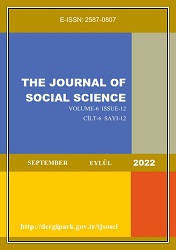Post-Cold War Russian-German Relations: The New Balance of Powers in Europe?
Post-Cold War Russian-German Relations: The New Balance of Powers in Europe?
Author(s): Halit HamzaoğluSubject(s): International relations/trade, Geopolitics, Peace and Conflict Studies
Published by: Dicle Üniversitesi, Sivil Havacılık Yüksekokulu
Keywords: Flexible alliances; Germany; Russia; the European balance of powers; Ukrainian conflict;
Summary/Abstract: Post-Cold War Russian-German relations have been hesitant. The two countries have established various cooperation mechanisms in economic terms. On the other hand, they acted with different perspectives on political issues. This situation has significantly affected the course of relations. In general terms, it is possible to define post-Cold War Russian-German relations as a strategic partnership. The Ukrainian question has significantly affected the course of relations. In particular, energy projects such as Nord Stream-2 have been laid aside in this process, thus replacing economic cooperation with strategic competition. In the name of Western solidarity, Germany risked abandoning the pragmatic cooperation it had built with Russia after the Cold War. However, it is possible to say that this situation will not hold a long-term and sustainable nature. Interdependence and the new balance of powers emerging in Europe directly affect the course of this process. In this context, the interdependence and strategic equations present in the relations should be underlined. The article discusses post-Cold War Russian-German relations. The article also goes into the general structure of relations between Russia and Germany within the framework of the European balance of powers perspective.
Journal: The Journal of Social Science
- Issue Year: 6/2022
- Issue No: 12
- Page Range: 223-233
- Page Count: 11
- Language: English

